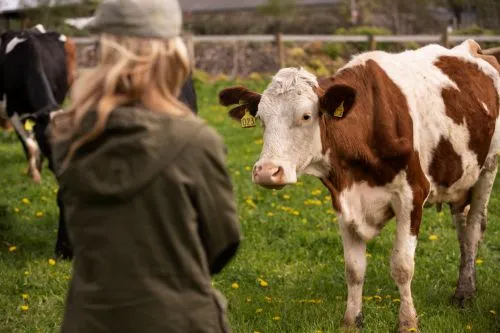1610

According to PigProgress, the European Parliament has approved new rules to reduce harmful emissions from industrial installations and large pig and poultry farms.
Agricultural organizations lobbied heavily to exempt animal breeders from regulations, but the European Parliament voted overwhelmingly in favor of revising the so-called "Industrial Emissions Directive" (IED).
Units with over 350 animals
The new rules will make it mandatory to establish the strictest possible emission levels for the covered sectors. To address water scarcity, environmental performance objectives will become mandatory for water consumption. For waste, resource efficiency, energy efficiency, and raw material use, objectives will fall within a range, and for new techniques, they will be indicative.
The European Parliament and other EU lawmakers agreed to extend IED measures to pig farms with over 350 animal units (AU), equivalent to approximately 1,100 adult pigs and 700 sows.
Farms are excluded if they raise pigs extensively or organically and outdoors for a significant period of time in a year. The current directive from 2010 already covered pig farms with over 2,000 pigs and 750 sows.
For poultry, the threshold remains unchanged at 280 AU or 40,000 animals for broiler production. For egg producers, the limit is reduced to 21,400 laying hens compared to 40,000 under existing rules.
Cattle farms excluded from the directive
The European Parliament previously decided to exclude cattle farms from the new directive. However, the European Commission must assess by December 31, 2026, whether it is necessary to further address emissions from animal husbandry, including cattle, and a reciprocity clause to ensure that producers outside the EU meet similar requirements to EU standards when exporting to the EU.
Penalties
Citizens across the EU can access data on all permits, including those from animal farms, through a new EU portal on industrial emissions. Companies that do not comply may face penalties of at least 3% of the operator's annual turnover in the EU for the most serious violations.
EU countries grant affected citizens the right to seek compensation for damages to their health caused by non-compliance.
Zero pollution goals of the Green Deal
Bulgarian MEP Radan Kanev (on behalf of the EPP political party) commented: "Today's vote demonstrates the Parliament's commitment to the zero-pollution goals of the Green Deal and the health of Europeans.
It also demonstrates that these objectives can be achieved without imposing additional administrative burdens on businesses and especially European farmers. The vote underscores that Members of the European Parliament understand the reasons behind farmers' protests."
The law must now be adopted by the Council before being published in the Official Journal of the EU and coming into force 20 days later. Member states will then have 22 months to comply with this directive.
Health issues
The Industrial Emissions Directive is the EU's primary instrument regulating air, water, and soil pollution from industrial installations, including intensive animal farms, which can lead to health problems such as asthma, bronchitis, and cancer, the European Parliament further explains.
It also regulates waste generation, raw material use, energy efficiency, noise, and accident prevention. (Photo: Freepik)





